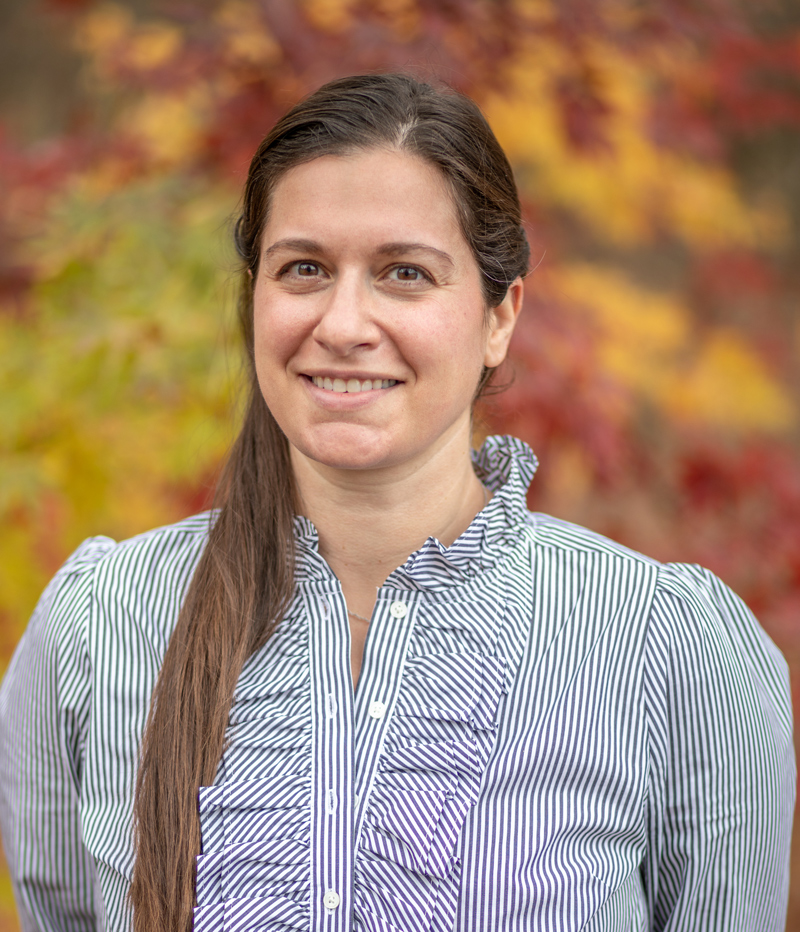
Christine Mueller
Assistant Professor of Occupational Therapy, Doctoral Capstone Director
School of Pharmacy and Allied Health
Courses
- OTD 6101 OT: Theory and History
- OTD 6115 Interprofessional Collaborative Practice
- OTD 6310 Movement and Adaptation
- OTD 6315 UE Eval & Intervention
- OTD 7100 Practice Immersion III: Peds
- OTD 7105 Contemporary Issues in Pediatrics
- OTD 7004 Capstone I
- OTD 7005 Capstone II
- OTD 8015 Capstone III
- OTD 8115 Capstone IV
- OTD 8010 OT Doctorate Seminar
- OTD 8110 Business Plan and Development in OT Practice
- OTD 9000 Doctoral Residency
- OTD 9005 Capstone Presentation
Research
- Intra/Interprofessional Collaboration Assistive Technology Informatics
Education
- BS, Quinnipiac University
- MOT, Quinnipiac University
- OTD, Quinnipiac University
Academic Profile
Dr. Mueller is the Doctoral Capstone Director and Assistant Professor for the entry-level OTD program at FDU. She holds a doctoral and master’s degree in Occupational Therapy and a bachelor’s in Health Science Studies from Quinnipiac University. She has several clinical certifications, including Neurodevelopmental Treatment and Ayres Sensory Integration. Additionally, Dr. Mueller is an assistive technology professional with advanced training in the DIR/Floortime approach.
Dr. Mueller’s clinical specialty is in pediatrics, working with children and their families, with a variety of diagnoses. She relies on various treatment approaches with the primary goal of facilitating a child’s engagement within their environment through active exploration. An additional clinical area of interest is seating and mobility across the lifespan. Dr. Mueller has experience both managing and treating an interdisciplinary clinic. Her clinical experience has made her passionate about the use of technology to increase communication and collaboration between professionals, caregivers, and clients.
As an educator, Dr. Mueller believes in building students’ professional identity as occupational therapists by providing robust foundational knowledge and understanding of the practice areas within the rehabilitation system. Developing these skills and encouraging collaboration with individuals in administration, leadership, and advanced clinical roles can only strengthen the profession’s ability to influence decision-making and increase the leadership capacity within the larger rehabilitation system.
Important Note: Faculty profiles may include links to one or more non-FDU websites, including websites self-maintained by faculty to provide additional information about their publications, scholarly pursuits, and other information of interest. If you click on these links, you will be leaving the FDU-maintained website and will be directed to a site that is not under the control of FDU. FDU is not responsible for the content or accessibility of linked non-FDU websites. If, however, you experience a problem with the content or accessibility of a linked website, please contact us using the information on our Accessibility page. |
